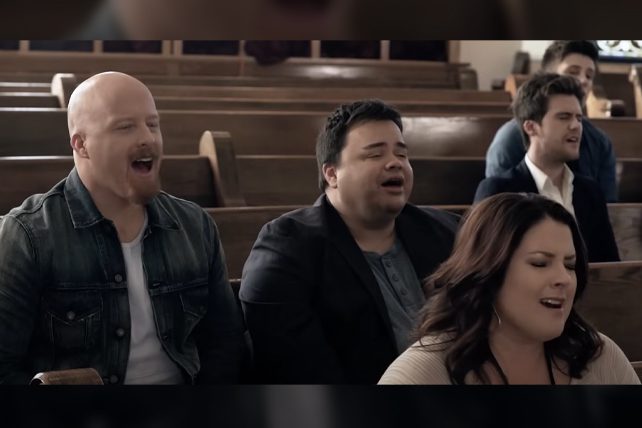Notably, the word “doxology” comes from the Greek words “doxa” and “logos.” The former means “glory” and the latter means “word,” so “doxology” literally translates to “word of glory.”
Who Wrote the Doxology? Doxology and Church Tradition
Within the Roman Catholic and Anglican traditions, there are specific songs that are called doxologies, in addition to the one with which most Protestants are familiar. One of these is known as “the greater doxology,” or Gloria in Excelsis, which is usually sung in Latin. In English, the Roman Catholic version reads as follows:
Glory to God in the highest, and peace to his
people on earth.
Lord God, heavenly King,
almighty God and Father,
we worship you, we give you thanks,
we praise you for your glory.
Lord Jesus Christ, only Son of the Father,
Lord God, Lamb of God
you take away the sin of the world:
have mercy on us;
you are seated at the right hand of the Father:
receive our prayer.
For you alone are the Holy One,
you alone are the Lord,
you alone are the Most High,
Jesus Christ,
with the Holy Spirit
in the glory of God the Father. Amen.
RELATED: Have you Heard of “Angicostals?
The Gloria Patri, also known as the “lesser doxology,” is used in many Christian traditions at the conclusion of singing the psalms:
Glory be to the Father, and to the Son, and
to the Holy Spirit, as it was in the beginning, is
now, and ever shall be, world without end. Amen.
The song we know as “The Doxology” is a “metrical doxology,” meaning it is sung in the same meter. Within the Protestant tradition, it is often sung after the last hymn of the service.
It is also worth noting the importance of the doxology within the Jewish tradition. It became a practice within Judaism to recite a doxology, or “kaddish,” at the conclusion of the main parts of a synagogue service.

